
Discover the Cultural Heart of Hanoi: Dong Da District
Dong Da District is a vibrant and culturally rich area in Hanoi, Vietnam. Known for its historical significance and bustling atmosphere, it offers tourists a unique blend of ancient traditions and modern life. The district is home to several important landmarks, including the Temple of Literature, which is Vietnam's first national university and a symbol of its enduring educational heritage. Visitors can also explore the Vietnam Fine Arts Museum, which showcases an impressive collection of Vietnamese art and artifacts. Strolling through Dong Da District, you'll find a mix of old and new Hanoi. Traditional markets sit alongside contemporary cafes and restaurants, offering a diverse culinary experience. The local street food scene is particularly noteworthy, with numerous vendors serving up delicious Vietnamese dishes such as pho, bun cha, and banh mi. In addition, the district's many pagodas and temples provide a serene escape from the city's hustle and bustle. For those interested in local culture, Dong Da District hosts several festivals and events throughout the year. The most famous is the Dong Da Mound Festival, commemorating the historic victory of King Quang Trung over the Qing invaders. This vibrant celebration features traditional music, dance, and reenactments of historical battles, offering a fascinating glimpse into Vietnam's rich history.
Local tips in Dong Da District
- Visit the Temple of Literature early in the morning to avoid large crowds and enjoy a peaceful experience.
- Try the local street food at Dong Da Market for an authentic taste of Hanoi's culinary delights.
- Wear comfortable walking shoes, as many attractions in Dong Da District are best explored on foot.
- Check the local calendar for festival dates to experience traditional Vietnamese celebrations.
Discover the Cultural Heart of Hanoi: Dong Da District
Dong Da District is a vibrant and culturally rich area in Hanoi, Vietnam. Known for its historical significance and bustling atmosphere, it offers tourists a unique blend of ancient traditions and modern life. The district is home to several important landmarks, including the Temple of Literature, which is Vietnam's first national university and a symbol of its enduring educational heritage. Visitors can also explore the Vietnam Fine Arts Museum, which showcases an impressive collection of Vietnamese art and artifacts. Strolling through Dong Da District, you'll find a mix of old and new Hanoi. Traditional markets sit alongside contemporary cafes and restaurants, offering a diverse culinary experience. The local street food scene is particularly noteworthy, with numerous vendors serving up delicious Vietnamese dishes such as pho, bun cha, and banh mi. In addition, the district's many pagodas and temples provide a serene escape from the city's hustle and bustle. For those interested in local culture, Dong Da District hosts several festivals and events throughout the year. The most famous is the Dong Da Mound Festival, commemorating the historic victory of King Quang Trung over the Qing invaders. This vibrant celebration features traditional music, dance, and reenactments of historical battles, offering a fascinating glimpse into Vietnam's rich history.
Iconic landmarks you can’t miss
Ho Chi Minh's Mausoleum
Explore the profound history of Vietnam at Ho Chi Minh's Mausoleum, a significant landmark honoring the nation's beloved leader.
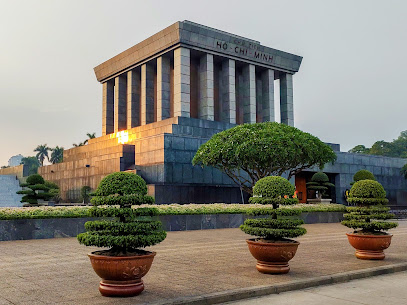
Temple Of Literature
Explore the Temple of Literature, Hanoi's historical sanctuary dedicated to Confucius, a symbol of education and cultural pride.
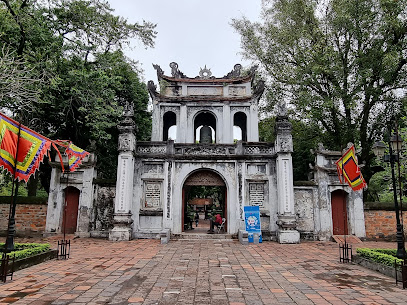
Imperial Citadel of Thang Long
Discover the rich history and stunning architecture of the Imperial Citadel of Thang Long, a UNESCO World Heritage site in the heart of Hanoi, Vietnam.
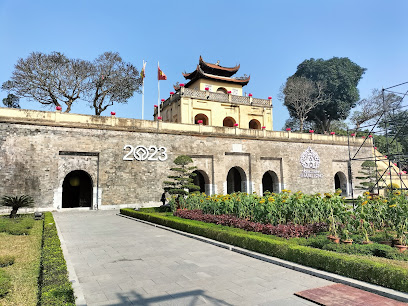
One Pillar Pagoda
Discover the architectural marvel of One Pillar Pagoda in Hanoi, a symbol of Vietnam's rich cultural and religious heritage.
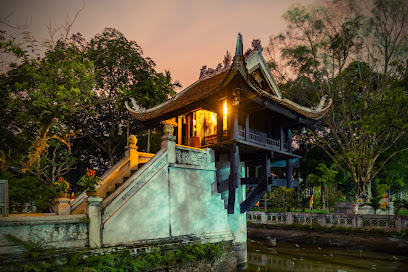
Emperor Ly Thai To Monument Statue
Explore the Emperor Ly Thai To Monument in Hanoi, a stunning tribute to Vietnam's founding emperor amidst lush greenery and rich history.
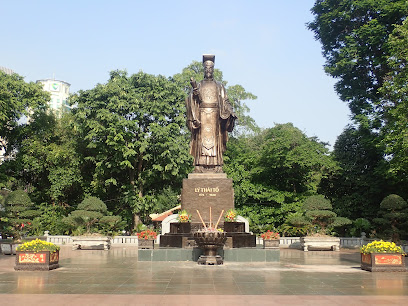
Hanoi Flagtower
Discover the historical essence and vibrant beauty of the Hanoi Flagtower, a must-visit landmark showcasing Vietnam's rich heritage.
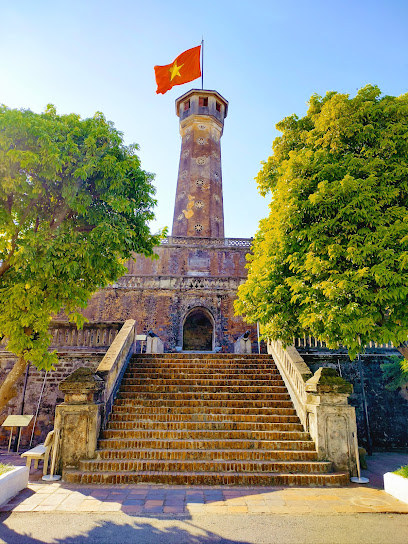
Dong Da Mound
Explore Dong Da Mound, a serene memorial park in Hanoi celebrating Vietnam's resilience and rich history with lush landscapes and vibrant local culture.
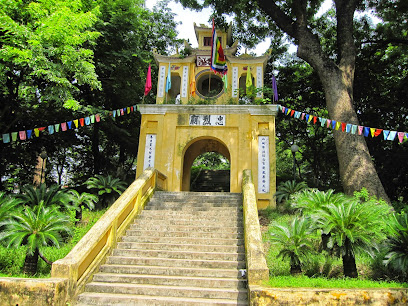
Khue Van Cac
Discover Khue Van Cac, a historical landmark in Hanoi, where culture, education, and stunning architecture come together in serene harmony.
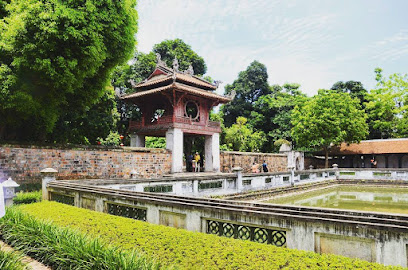
King Le Thai To's Temple
Explore King Le Thai To's Temple, a historical landmark in Hanoi that embodies the cultural heritage and architectural beauty of Vietnam.
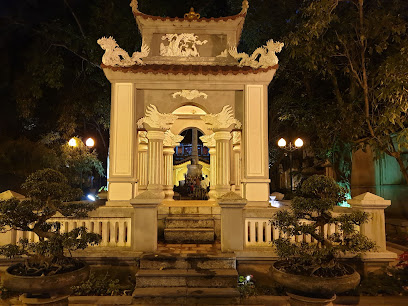
Hao Nam Temple
Discover the serenity and cultural richness of Hao Nam Temple, a hidden gem in the heart of Hanoi, Vietnam, where spirituality and history intertwine.
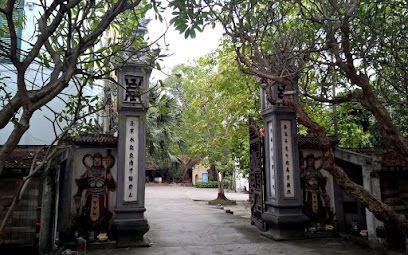
Unmissable attractions to see
Ho Chi Minh's Mausoleum
Discover the historical significance of Ho Chi Minh's Mausoleum in Hanoi, a serene tribute to Vietnam's beloved leader surrounded by beautiful gardens.
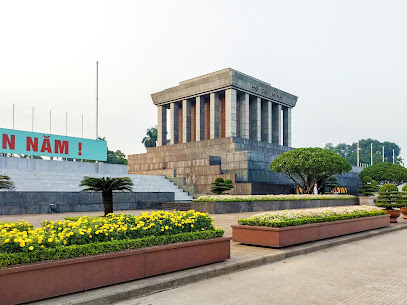
Imperial Citadel of Thang Long
Discover the Imperial Citadel of Thang Long, a UNESCO World Heritage site showcasing Vietnam's rich history and architectural beauty in the heart of Hanoi.

Thang Long Water Puppet Theatre
Discover the magical world of traditional Vietnamese water puppetry at Thang Long Water Puppet Theatre in the heart of Hanoi, a cultural gem for all ages.
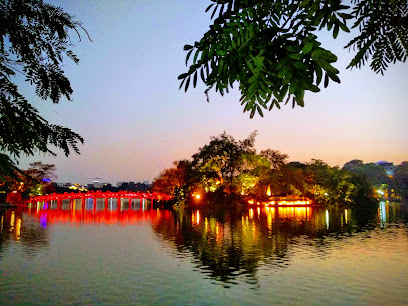
Ho Chi Minh Museum
Explore the life and legacy of Ho Chi Minh at this insightful museum in Hanoi, showcasing Vietnam's rich history and revolutionary spirit.
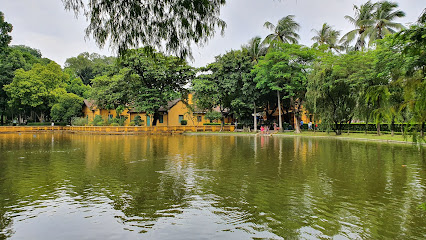
Hanoi Old Quarter
Explore the bustling streets of Hanoi's Old Quarter, a historical landmark filled with culture, cuisine, and captivating charm.
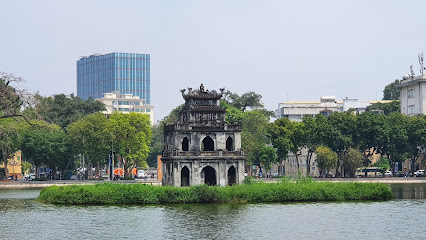
Vietnam Military History Museum
Discover Vietnam's military legacy at the Vietnam Military History Museum, where history comes alive through engaging exhibits and artifacts.
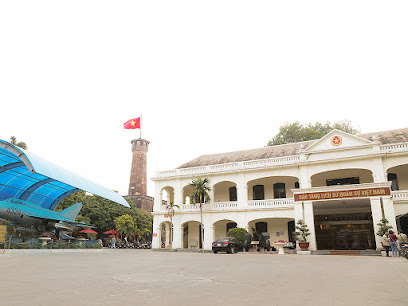
Hanoi Flagtower
Discover the Hanoi Flag Tower, a historical landmark symbolizing Vietnam's resilience and offering insights into the country's rich cultural heritage.
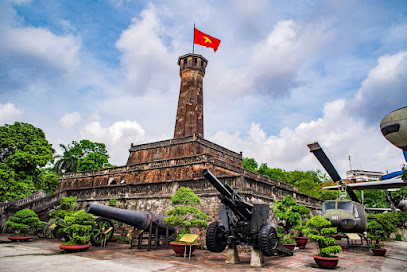
Essential places to dine
Essence Restaurant
Experience authentic Vietnamese cuisine at Essence Restaurant in Hanoi—where tradition meets modernity in every dish.
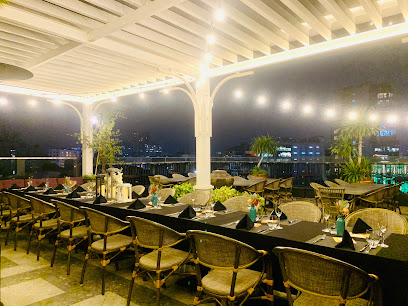
La Badiane
Discover the fusion of French elegance and Vietnamese flavors at La Badiane in Hanoi.
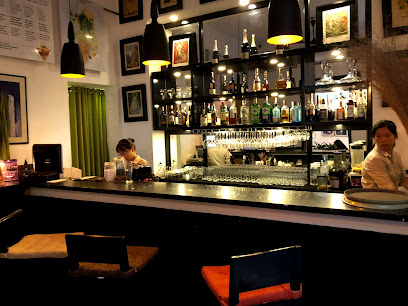
VIET Restaurant Hanoi
Experience authentic Vietnamese flavors in a contemporary setting at VIET Restaurant Hanoi, where every dish tells a story.
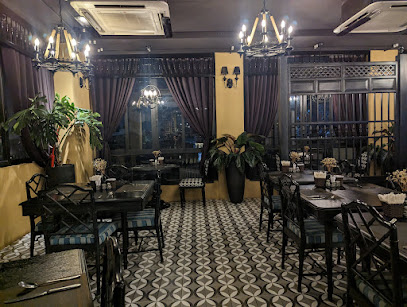
Hanoi Garden Restaurant
Experience authentic Vietnamese cuisine amidst serene gardens at Hanoi Garden Restaurant – A must-visit culinary destination in Hanoi.
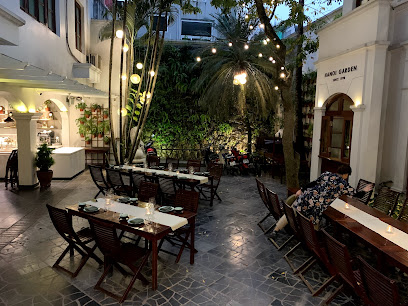
Nhà hàng Tầm Vị
Experience authentic Vietnamese cuisine at Nhà hàng Tầm Vị in Hanoi – a culinary gem offering traditional dishes in a warm atmosphere.
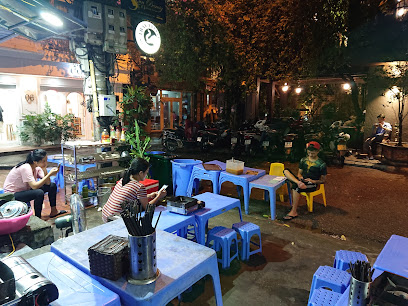
Muối Tiêu - Salt n' Pepper Kitchen
Experience vibrant Asian fusion cuisine at Muối Tiêu - Salt n' Pepper Kitchen in Hanoi, where tradition meets innovation in every dish.
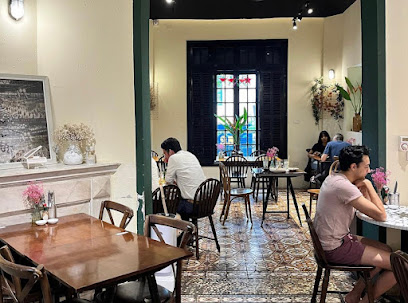
Old Hanoi Restaurant
Experience authentic Vietnamese cuisine at Old Hanoi Restaurant - a culinary journey through flavors in the heart of Hanoi.
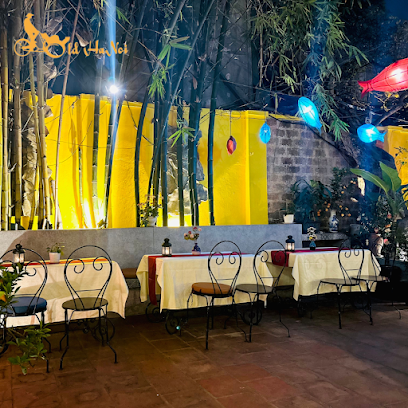
The East
Discover authentic Vietnamese cuisine at The East in Hanoi—where traditional flavors meet contemporary dining.
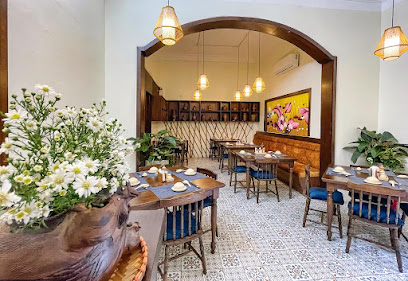
Gia Restaurant
Discover culinary artistry at Gia Restaurant, where fine dining meets the vibrant flavors of Vietnam's rich gastronomic culture.
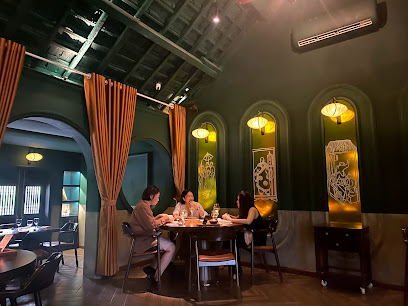
What the B Restaurant
Experience authentic Vietnamese flavors at What the B Restaurant in Hanoi – a delightful culinary journey awaits!
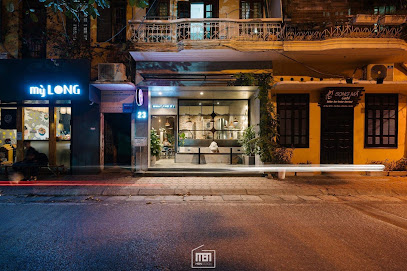
Markets, malls and hidden boutiques
TiredCity 37 Hàng Hành
Discover unique souvenirs and local artistry at TiredCity, Hanoi's premier gift shop offering a variety of handmade treasures and stylish apparel.
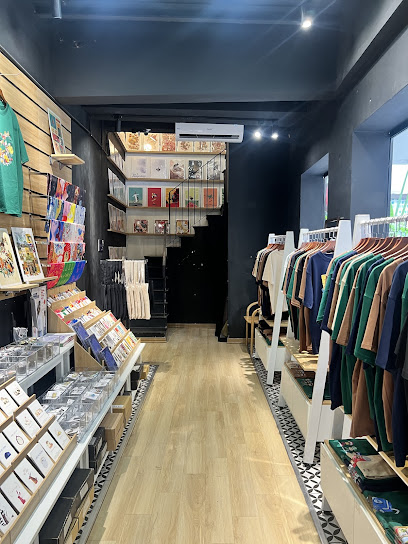
Collective Memory - The House of Curios
Explore Collective Memory - The House of Curios in Hanoi for unique souvenirs, handcrafted gifts, and a taste of Vietnamese culture.
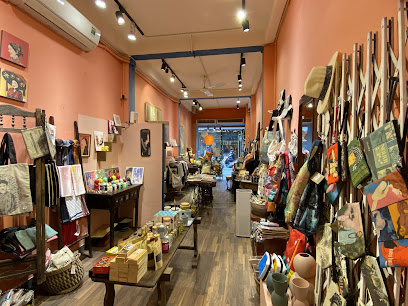
Humanity Hanoi
Explore Humanity Hanoi for unique gifts and home goods, showcasing the best of Vietnamese craftsmanship and creativity.
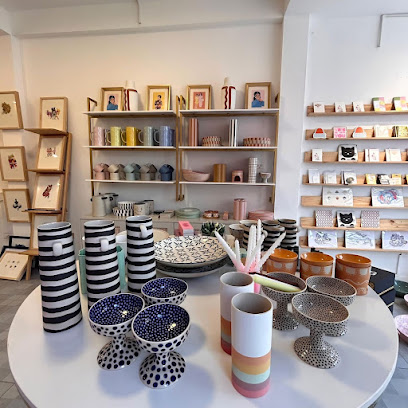
Chăn Con Công - Vintage Store
Explore the unique vintage clothing at Chăn Con Công, a hidden gem in Hanoi offering stylish treasures for fashion enthusiasts.
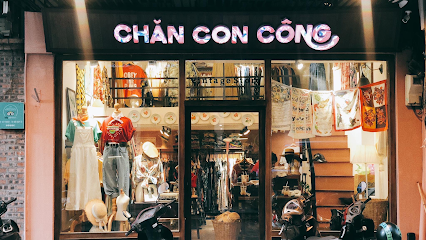
Shop Craft Link
Explore authentic Vietnamese craftsmanship at Shop Craft Link, a unique souvenir store showcasing artisan wares and cultural treasures in Hanoi.
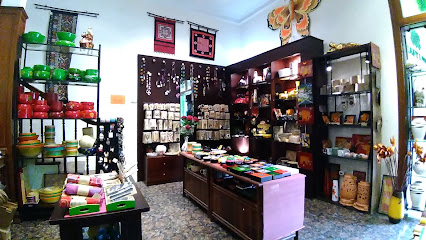
Nagu Vietnam
Explore Nagu Vietnam - a charming novelty store in Hanoi offering unique souvenirs and traditional crafts that embody the spirit of Vietnam.
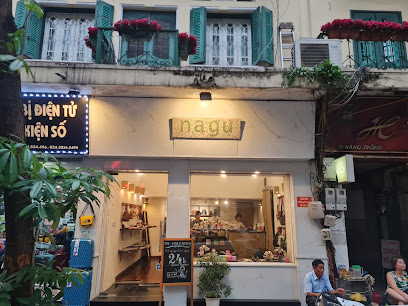
Indigo Store
Explore Indigo Store in Hanoi for a unique blend of fashion and organic products, showcasing the artistry of local artisans and sustainable practices.
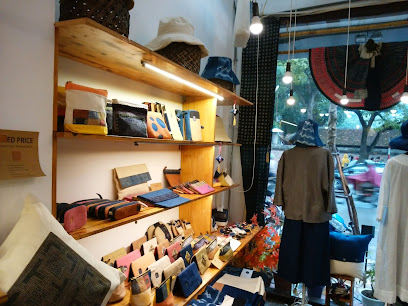
Sweet Sandy - Souvenir, Crafts, Art
Discover Sweet Sandy, your go-to gift shop in Hanoi for authentic Vietnamese crafts, art, and unique souvenirs that capture the spirit of Vietnam.
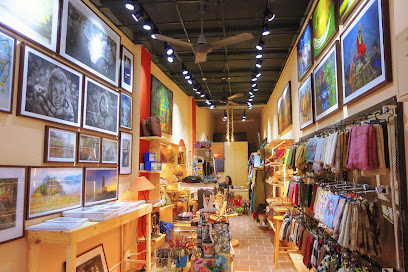
Sun Craft Vietnam - Thủ Công Mỹ Nghệ Việt Nam
Explore the magic of Vietnam through unique handcrafted gifts at Sun Craft Vietnam, where every purchase tells a story of artistry and heritage.
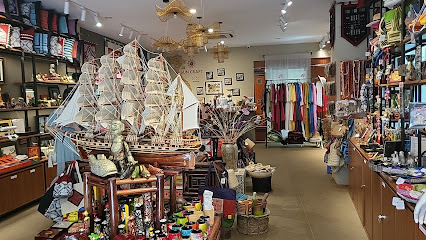
July Shop - Vietnamese Handicraft
Explore the rich artistic heritage of Vietnam at July Shop, where handcrafted Vietnamese handicrafts await your discovery.
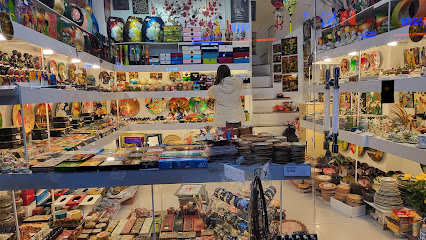
Essential bars & hidden hideouts
Cloud Sky Bar Hanoi
Cloud Sky Bar Hanoi: Elevate your nightlife with stunning views and exquisite cocktails in the heart of Vietnam's capital.

Nê Cocktail bar
Discover Nê Cocktail Bar in Hanoi, an innovative cocktail haven blending local flavors and vibrant atmosphere for an unforgettable night out.
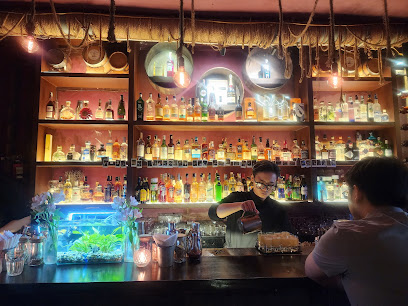
Beeznees 1920s
Experience the allure of the 1920s at Beeznees, Hanoi's premier cocktail bar offering vintage charm and exquisite mixology.
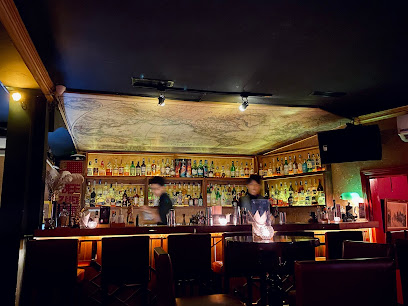
Nga Vinh II Restaurant - Ha Noi Cool Beer
Experience authentic Vietnamese cuisine and local brews at Nga Vinh II Restaurant, a lively brewpub in the heart of Hanoi.
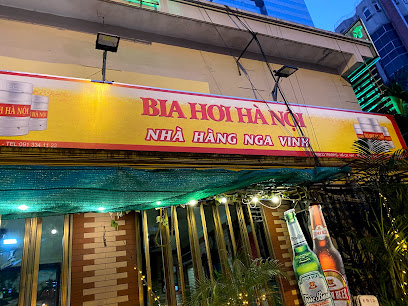
The Player Cocktail Bar
Experience the vibrant nightlife of Hanoi at The Player Cocktail Bar, where unique cocktails and a lively atmosphere await.
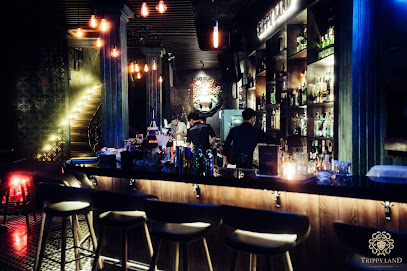
The DIOS - best cocktail bar Hà Nội
Experience the vibrant nightlife of Hà Nội at The DIOS, where expertly crafted cocktails meet a lively atmosphere in the heart of the city.
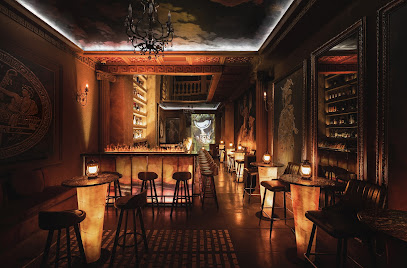
Sành Lounge
Experience the vibrant nightlife of Hanoi at Sành Lounge, a chic bar blending brewpub charm with adult entertainment in a stylish setting.

9luv Cocktail and Wine bar
Discover the vibrant nightlife at 9luv Cocktail and Wine Bar, a must-visit destination for tourists in Hanoi seeking exquisite cocktails and a lively atmosphere.
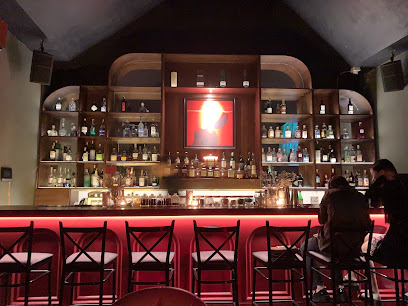
Pub
Experience the vibrant nightlife of Hanoi at this bustling pub, where drinks, live music, and camaraderie come together in the heart of Đống Đa.

Emerald Hanoi
Immerse yourself in the vibrant cocktail culture at Emerald Hanoi, where innovative mixology meets the heart of Vietnam's nightlife.

Local Phrases
-
- HelloXin chào
[sin chow] - GoodbyeTạm biệt
[tam byet] - YesCó
[koh] - NoKhông
[kohng] - Please/You're welcomeVui lòng
[vooi long] - Thank youCảm ơn
[kahm uhn] - Excuse me/SorryXin lỗi
[sin loy] - How are you?Bạn khỏe không?
[ban kho eh kohng] - Fine. And you?Khỏe, còn bạn?
[kho eh, kohn ban] - Do you speak English?Bạn có nói tiếng Anh không?
[ban koh noy tyeng ang kohng] - I don't understandTôi không hiểu
[toy kohng hye-u]
- HelloXin chào
-
- I'd like to see the menu, pleaseTôi muốn xem menu, vui lòng
[toy moon sem menu, vooi long] - I don't eat meatTôi không ăn thịt
[toy kohng an tit] - Cheers!Dô!
[doh] - I would like to pay, pleaseTôi muốn thanh toán, vui lòng
[toy moon thanh toan, vooi long]
- I'd like to see the menu, pleaseTôi muốn xem menu, vui lòng
-
- Help!Giúp!
[yup] - Go away!Đi ra!
[dee ra] - Call the Police!Gọi cảnh sát!
[goy kahng saht] - Call a doctor!Gọi bác sĩ!
[goy bahk see] - I'm lostTôi lạc đường
[toy lak doong] - I'm illTôi ốm
[toy ohm]
- Help!Giúp!
-
- I'd like to buy...Tôi muốn mua...
[toy moon moo-a] - I'm just lookingTôi chỉ xem
[toy chee sem] - How much is it?Nó giá bao nhiêu?
[no zah bao nyew] - That's too expensiveĐắt quá
[dat kwah] - Can you lower the price?Giảm giá được không?
[yem zah dau kohng]
- I'd like to buy...Tôi muốn mua...
-
- What time is it?Bây giờ là mấy giờ?
[bay zaw la may zaw] - It's one o'clockMột giờ
[moh zoh] - Half past (10)Mười giờ mười năm phút
[moo-ee zaw moo-ee nahm foot] - MorningBuổi sáng
[booi sang] - AfternoonBuổi chiều
[booi chee-ew] - EveningBuổi tối
[booi toy] - YesterdayHôm qua
[hom kwa] - TodayHôm nay
[hom nigh] - TomorrowNgày mai
[ny-eye my] - 1Một
[moh] - 2Hai
[high] - 3Ba
[bah] - 4Bốn
[bohn] - 5Năm
[nahm] - 6Sáu
[sow] - 7Bảy
[bahy] - 8Tám
[tahm] - 9Chín
[cheen] - 10Mười
[moo-ee]
- What time is it?Bây giờ là mấy giờ?
-
- Where's a/the...?Ở đâu có...?
[aw dow koh] - What's the address?Địa chỉ là gì?
[zee-ah chee la zee] - Can you show me (on the map)?Bạn có thể chỉ cho tôi (trên bản đồ) không?
[ban koh te chih chaw toy tren ban do kohng] - When's the next (bus)?Khi nào là chuyến xe tiếp theo?
[khee now la chuyen se teep the-aw] - A ticket (to ....)Một vé (đi ...)
[moh zay dee]
- Where's a/the...?Ở đâu có...?
History of Dong Da District
-
In 1789, the Dong Da District became the site of a decisive battle during the Tây Sơn rebellion. The Tây Sơn forces, led by Nguyễn Huệ, confronted the invading Qing dynasty troops. Utilizing strategic warfare and the element of surprise, the Tây Sơn defeated the Qing forces, which led to a significant shift in power in Vietnam. This battle is commemorated annually during the Tết holiday, highlighting its importance in Vietnamese history.
-
Nearby Dong Da, the Temple of Literature (Văn Miếu) was established in 1070 and served as Vietnam's first national university. This institution played a central role in the education of Confucian scholars for centuries, contributing to the cultural and intellectual landscape of Hanoi. The temple remains a symbol of Vietnam's scholarly traditions and is a vital part of the District's cultural heritage.
-
During the French colonial period, the urban planning of Hanoi included developments in Dong Da District, with the introduction of colonial architecture and public buildings. This era marked a significant transformation in the district's infrastructure, blending traditional Vietnamese styles with French architectural influences. Key sites from this period still serve as reminders of the complex history of Vietnam under French rule.
-
After the Vietnam War, Dong Da District underwent significant reconstruction efforts. The district, once heavily damaged during the conflict, saw initiatives aimed at revitalizing its urban landscape and infrastructure. This period marked the beginning of a new era of development, with a focus on modernizing public amenities and housing, reflecting the resilience of the local population.
-
In recent decades, Dong Da District has experienced rapid urbanization while striving to preserve its historical and cultural heritage. Efforts include the restoration of historical sites and the promotion of local traditions. The district hosts various cultural events, exhibitions, and festivals that celebrate its rich history, making it a vibrant area for both residents and visitors.
Dong Da District Essentials
-
Dong Da District is centrally located in Hanoi, making it easily accessible from other neighborhoods. From Hoan Kiem District, you can take a taxi or rideshare service; the journey typically takes around 15-20 minutes, depending on traffic. Alternatively, local buses serve the area, with routes connecting from major districts such as Ba Dinh and Hai Ba Trung. If arriving by train, the Hanoi Railway Station is nearby, and from there, a short taxi ride will take you to Dong Da.
-
Dong Da District is well-connected through public transportation. The Hanoi Metro Line 3 has stations that service the district, providing a quick way to navigate the city. Local buses are plentiful and inexpensive, covering most areas in Dong Da. For a more localized experience, consider renting a bicycle or using ride-hailing apps for motorbike taxis. Walking is also a pleasant option, especially in the quieter residential areas.
-
Dong Da is generally a safe neighborhood for tourists, but standard precautions should be observed. Petty crimes such as pickpocketing can occur, particularly in crowded areas like the Dong Da market. Avoid walking alone at night in less populated streets. It’s advisable to stay aware of your surroundings and keep your belongings secure, especially near tourist hotspots.
-
In case of an emergency, dial 113 for police assistance, 114 for fire services, and 115 for medical emergencies. Hospitals such as Bach Mai Hospital and Hanoi Medical University Hospital are located within Dong Da. It is recommended to have travel insurance that covers medical emergencies and to familiarize yourself with the nearest medical facilities upon arrival.
-
Fashion: Do dress modestly when visiting temples and religious sites. Avoid wearing shorts or sleeveless tops. Religion: Do respect local customs; remove shoes when entering homes and religious sites. Public Transport: Do offer your seat to the elderly and pregnant women. Don't play loud music or speak loudly on public transport. Greetings: Do greet locals with a smile and a nod. A handshake is common, but avoid physical contact with the opposite sex unless initiated. Eating & Drinking: Do try local street food and accept food offerings with gratitude. Don't waste food or refuse food politely offered to you, as it may be seen as disrespectful.
-
To experience Dong Da like a local, explore the vibrant markets such as the Dong Da market and take part in traditional activities. Try street food at local stalls, particularly pho and banh mi. Engage with local residents; they are often friendly and happy to share insights about the neighborhood. Visiting the Temple of Literature, a historical site dedicated to Confucius, is a must-do, along with a stroll through the nearby botanical garden for a relaxing experience.
Nearby Cities to Dong Da District
-
Things To Do in Ha Long
-
Things To Do in Sapa
-
Things To Do in Xieng Khouang
-
Things To Do in Phonsavan
-
Things To Do in Luang Prabang
-
Things To Do in Thakhek
-
Things To Do in Vang Vieng
-
Things To Do in Vientiane
-
Things To Do in Muang Sing
-
Things To Do in Savannakhet
-
Things To Do in Udon Thani
-
Things To Do in Hue
-
Things To Do in Nan
-
Things To Do in Loei
-
Things To Do in Da Nang









